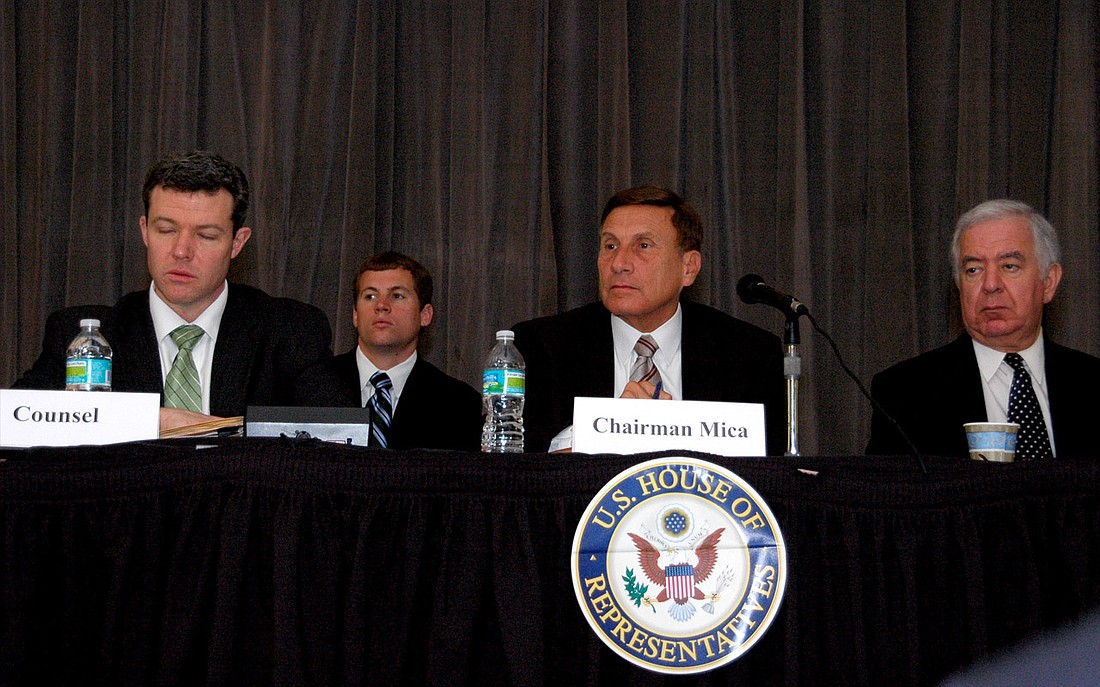- April 25, 2024
-
-
Loading

Loading

Tolls for all Florida interstate highways and a tax for every mile you drive were up for discussion at a transportation summit Monday in Maitland.
Headed by U.S. Rep. John Mica, R-Winter Park, the summit brought together federal legislators from as far as Hawaii, as well as a consortium of transportation organization representatives who all threw out ideas on how and where money should be spent and collected to fund Florida’s transportation future.
“If you want to go to Disney World, you should not have to travel over Mickey Mouse roads to get here,” U.S. Rep. Nick Rahall (D-W.Va.) said.
The summit came on the heels of a recent high-profile decision from Florida Gov. Rick Scott to reject $2.4 billion in federal funding for a high-speed rail system that would have potentially linked Orlando to Tampa, and eventually Orlando to Miami.
U.S. Rep. Corrine Brown, D-Jacksonville, called Scott’s decision-making “stuck on stupid,” and said that she was tired of politically motivated promises changing between election cycles.
“When you make commitments, what does that mean if you’re just going to change your mind in election season?” she asked.
Some of the wildest ideas during the summit had already been brushed off by Mica previously, such as paying tolls on currently free public highways.
That idea was suggested by the Florida Department of Transportation’s assistant secretary for engineering and operations, Ananth Prasad, who said that it could bring in billions in revenue.
Volusia County Chairman Frank Bruno did not comment on Prasad’s toll suggestion, but said that Florida’s need for more transportation money and infrastructure wasn’t going away.
“The national recession has hit our area hard,” Bruno said. “But the need for infrastructure increases does not always decrease in tough economic times.”
A fundraising idea suggested by Bob Burleson, president of the Florida Transportation Builders’ Association, would substantially change how motorists are taxed in the state. He suggested that drivers should be taxed per mile they drive, aka a VMT, or vehicle miles traveled tax.
“It could use a GPS tracking system, and charge people different amounts for day or night,” Burleson said. “Or it could just plug into your odometer.”
The tax would effectively replace gasoline taxes, he said, which currently cost 16 cents per gallon for gas or diesel, making Florida one of the least-taxed states in the country. At the county level, gasoline is taxed up to an additional 5 cents per gallon.
Burleson said that drivers have been distanced from the impact their driving has on the roads.
“If users knew what they actually paid to use the roads, they might use them less now,” Burleson said. “We’d get another 30 percent [extra time between repaving] out of the roads.”
Some of the summit’s discussions focused on paying for transportation systems, which had been one of Gov. Scott’s biggest objections to high-speed rail, despite recent reports showing the system would have made money.
Richard Lawless, president of U.S.-Japan High-Speed Rail, said that he had firsthand experience witnessing how to build a financially successful high-speed rail line. The Tokyo-Osaka rail line, he said, netted $1 billion in income the first year, and rapidly paid off to investors.
“The core was exceptional service, a perfect safety record … trains would never be more than 30 seconds late,” Lawless said.
Mica said that he’d take all of the suggestions under advisement, bringing them back to Washington, D.C., to help bring more money to Florida in the future.